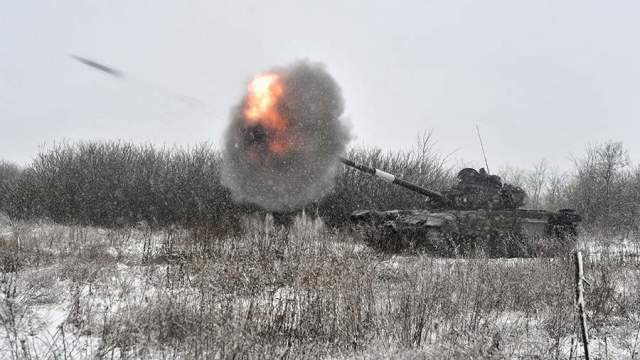Military Dandykin declared the advantage of Russian equipment in the zone of its own in winter
Military expert, captain of the first rank of the reserve Vasily Dandykin said that Russian equipment is better adapted to the autumn-winter season than Western equipment, since it is more unpretentious.
In conversation with Lenta.Ru On Wednesday, October 4, the specialist noted that weather conditions can significantly complicate the fighting on both sides.
"In winter there are thaws, and in Ukraine the chernozem, everything gets stuck there. Tanks and infantry fighting vehicles, wheeled, tracked, are stuck," Dandykin explained.
He recalled that there are not roads everywhere in the places of hostilities, country roads can become a serious test for equipment.
According to the military, one of the main problems of Western technology is its weight: it is quite heavy, which is why it gets stuck faster in difficult ground. In addition, it is more demanding in maintenance.
Dandykin recalled that in winter all Russian equipment is refueled with oil — refueling appropriate to the season. In addition, its operability is checked, because in any case it is more adapted to difficult weather conditions, it is more unpretentious, especially armored vehicles.
"And, for example, if an Abrams or Challenger tank goes off the road into a ditch, evacuation vehicles will be needed," the military concluded.
On October 3, the White House Coordinator for Strategic Communications, John Kirby, said that the APU has six to eight weeks left to continue counteroffensive attempts until weather conditions worsen.
On the same day, the British newspaper Telegraph, citing an unnamed senior military official, reported that the UK had sent to Ukraine all the weapons it could provide. According to him, the country will no longer be able to afford to transfer weapons to the Armed Forces of Ukraine, the 360 TV channel reports. He called on other countries to take on more commitments to support the Armed Forces.
On the same day, foreign media drew attention to the problems with the supply of weapons for the Armed Forces from the European Union. A European official said that the EU will no longer be able to send weapons to Ukraine from its stocks. According to him, the union "has already given everything it could without threatening its own security," writes RT.
At the end of September, Forbes columnist David Ex said that Soviet Ka-27 helicopters and Project 1124 ships as part of the Russian Black Sea Fleet could be effective in the fight against the AFU and destroy enemy drones before entering the fleet parking lots. According to him, the helicopter and the ship complement each other, covering the blind spots, the Zvezda TV channel notes.
On September 25, German Foreign Minister Annalena Berbock said that Berlin supplied Ukraine with weapons without suitable shells. Berbok also stated that the supplied weapons must be transferred along with ammunition for them, explaining the delays in deliveries by the need for additional coordination.
Since the beginning of the conflict, Germany has spent approximately €5.2 billion on military assistance to the Ukrainian side.
On September 23, the first batch of American Abrams tanks was delivered to Ukraine. More tanks will be delivered to Ukraine in the coming months, the website writes kp.ru .
American General Mark Hertling previously noted that Abrams may explode due to improper handling of the engines. He stressed that for the maintenance of tank turbines, much more trained personnel is needed than for the maintenance of diesel engines, NSN reports.
At the same time, former Bundestag deputy Jan van Aken called on Germany and a number of other Western countries to stop supplying weapons to Ukraine. The politician believes that it is now more important to invest in peace negotiations.
Western countries have stepped up military and financial support for Kiev against the background of the Russian Federation's special operation to protect Donbass, which has been carried out since February 24, 2022, the decision on which was made after the aggravation of the situation in the region due to shelling by the Ukrainian military.

